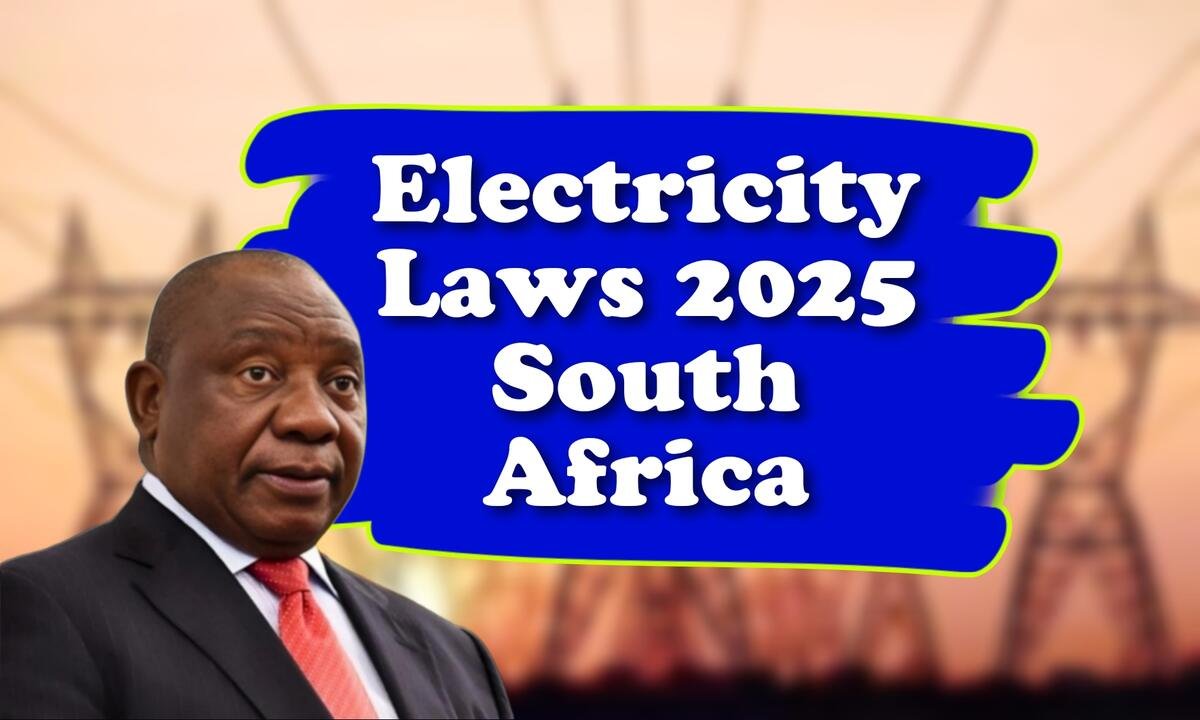South Africa Electricity Laws 2025 : South Africa’s long-strained electricity system is set for a major transformation in 2025, owing to the landmark reforms outlined in the Electricity Regulation Amendment Act. As competition is to be given a chance, the legislation aims to modernize infrastructure, and promote renewable energy on its path to reforming power production, trading, and finally delivery in the immediate years ahead.
Opening Power Sector
The new law opens up the electricity market in South Africa beyond what was before the overwhelming influence of Eskom. A major concerted effort is on setting up a Transmission System Operator (or TSO) independently, with interim support from the National Transmission Company of South Africa (NTCSA). In this manner, the new law guarantees impartial access to the grid and opens the door to a genuinely competitive electricity market. On the consumer side, it may mean having choices outside of Eskom, in other words, allowing a commercial establishment and the domestic household alike to choose from whom they buy their power.
A Competitive Wholesale Market And Independent Producers
Gone are the days when electricity auctions happened only through state-run windows at given times. Now, the law encourages especially renewable IPPs to freely enter the marketplace. This includes power from solar, wind, biomass, and even gas. And to that end, there will be a day-ahead market for hourly energy trade that matches supply with demand in a much more efficient way. The new regulatory framework and the market code have been drafted to accommodate this change.
Renewable Energy, Storage, Smart Grids And Community Power
The reforms encourage not only more renewables but investments in battery storage and smart grid technologies that will help solve the intermittency of green energy while ensuring grid stability. Projects run by the community such as solar co-ops are also promoted, allowing energy generation at the local level and disconnection from the national grid, as an especially relevant consideration in underserved areas.
Will Electricity Become More Affordable?
While the law aims to reduce the cost of energy through competition over time, however, experts provide words of encouragement for patience. Initial transition would, however, not be intended to see reductions in prices, fair billing and transparency remain the target for the consumers; meanwhile, tariff regulations become clearer, with NERSA keeping in mind grid sustainability, fair returns for providers, and affordability for the consumer.
What South Africans Should Do Now
- Watch your bills carefully : In the coming months, you might see multiple providers or billing formats.
- For businesses and communities, look into IPP opportunities like rooftop solar or storage solutions.
- Stay connected : Government and energy platforms will announce when competitive providers start operating.
Also Read: SASSA R560 Grant August 2025: Payment Dates And How To Fix Delays
